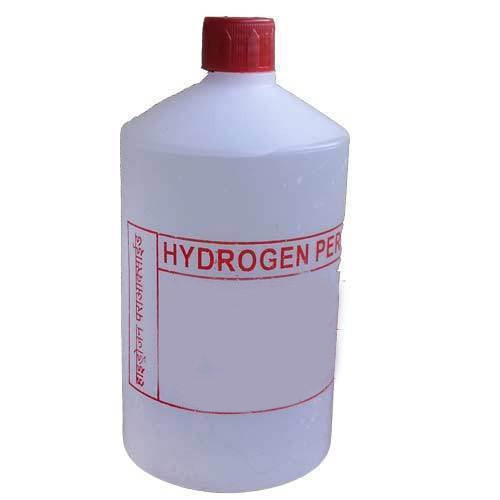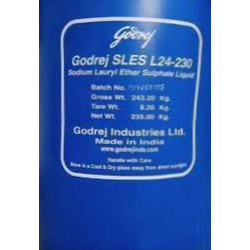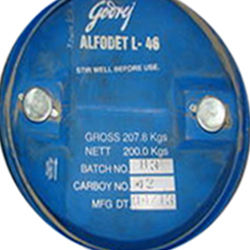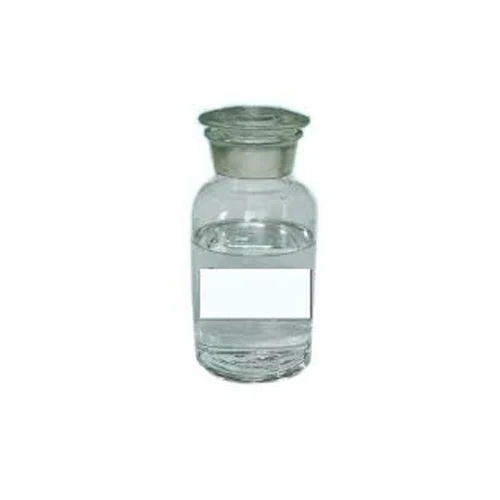
Hydrogen Peroxide
40 INR/Kilograms
Product Details:
- Product Type Hydrogen Peroxide
- Usage Wastewater Treatment, Food Processing, Bleaching Agent, Disinfectant
- Purity 50 Percent
- Molecular Formula H2O2
- Physical Form Liquid
- Storage Room Temperature
- CAS No 7722-84-1
- Click to view more
X
Hydrogen Peroxide Price And Quantity
- 500 Kilograms
- 40 INR/Kilograms
Hydrogen Peroxide Product Specifications
- 50 Percent
- Liquid
- H2O2
- Room Temperature
- 7722-84-1
- Hydrogen Peroxide
- Wastewater Treatment, Food Processing, Bleaching Agent, Disinfectant
Hydrogen Peroxide Trade Information
- 7 Days
Product Description
Hydrogen peroxide (H2O2) is a chemical compound consisting of two hydrogen atoms and two oxygen atoms. It is a clear liquid, slightly more viscous than water. Hydrogen peroxide is widely used for various purposes, including as a disinfectant, bleaching agent, oxidizer, and in rocket propulsion.
Here are some common uses of hydrogen peroxide:
1. Disinfectant: Hydrogen peroxide is commonly used as an antiseptic to clean wounds and prevent infection. It works by killing bacteria, viruses, and fungi upon contact.
2. Bleaching agent: It is used as a bleaching agent for various materials, including hair, fabrics, and paper. It can effectively remove stains and whiten surfaces.
3. Oral hygiene: Hydrogen peroxide is sometimes used as a mouth rinse to help whiten teeth and kill bacteria in the mouth. However, it should be used with caution as it can cause irritation and damage to the mouth tissues if used in high concentrations.
4. Water treatment: Hydrogen peroxide is used in water treatment processes to disinfect and remove impurities from water. It can help eliminate harmful bacteria and contaminants.
5. Cosmetic uses: It is used in the formulation of various cosmetics and personal care products, such as hair dyes, hair bleaching agents, and skin lightening creams.
6. Chemical synthesis: Hydrogen peroxide is used in various chemical reactions as an oxidizing agent. It is also used in the production of other chemicals, such as propylene oxide and epichlorohydrin.
Hydrogen Peroxide FAQ:
1. What is the concentration of hydrogen peroxide typically available for household use?
Hydrogen peroxide solutions commonly found in households typically have concentrations of 3% to 6%. Higher concentrations, such as 30% to 35%, are available for industrial and laboratory use but require special handling and precautions.
2. How does hydrogen peroxide work as a disinfectant?
Hydrogen peroxide works as a disinfectant by releasing oxygen when it comes into contact with biological materials such as bacteria, viruses, and fungi. This oxygen release creates a hostile environment for these microorganisms, effectively killing them.
3. Is hydrogen peroxide safe to use on wounds?
Yes, hydrogen peroxide is commonly used as an antiseptic to clean minor wounds and cuts. It helps to prevent infection by killing bacteria on the wound surface. However, it should be used in diluted form (typically 3%) and not applied to deep or serious wounds without medical supervision.
4. Can hydrogen peroxide be used to whiten teeth?
Yes, hydrogen peroxide is sometimes used as a teeth-whitening agent. It works by breaking down surface stains on teeth through its oxidizing properties. However, it should be used cautiously and under the guidance of a dentist to prevent damage to tooth enamel and irritation to the gums.
5. Can hydrogen peroxide be used for hair bleaching?
Yes, hydrogen peroxide is commonly used as a hair bleaching agent. It works by breaking down the melanin pigment in the hair shaft, resulting in a lighter color. However, it can also damage the hair cuticle and cause dryness, so it should be used with caution and followed by proper hair care treatments.
6. Is it safe to mix hydrogen peroxide with other substances?
No, hydrogen peroxide should not be mixed with other substances without proper knowledge and precautions. Mixing hydrogen peroxide with certain chemicals, such as acids or reducing agents, can result in hazardous reactions, including the release of toxic gases or explosions.
7. How should hydrogen peroxide be stored?
Hydrogen peroxide should be stored in a cool, dark place in a tightly closed container to prevent decomposition. Exposure to light, heat, or contaminants can accelerate its breakdown into water and oxygen.
8. Is hydrogen peroxide environmentally friendly?
Hydrogen peroxide breaks down into water and oxygen, making it environmentally friendly compared to some other disinfectants and bleaching agents. However, its environmental impact can vary depending on its usage and disposal practices.
9. Can hydrogen peroxide be used as a rocket propellant?
Yes, hydrogen peroxide can be used as a rocket propellant in certain propulsion systems, particularly in combination with a catalyst to decompose it rapidly into water and oxygen, producing thrust. However, this usage is more common in specialized applications and is not typical for household or commercial use.
FAQs of Hydrogen Peroxide:
Q: What is the molecular formula of Hydrogen Peroxide?
A: The molecular formula of Hydrogen Peroxide is H2O2.Q: What is the purity of Hydrogen Peroxide?
A: The purity of Hydrogen Peroxide is 50 percent.Q: What are the possible uses of Hydrogen Peroxide?
A: Hydrogen Peroxide can be used for wastewater treatment, food processing, as a bleaching agent, and as a disinfectant.Q: How should Hydrogen Peroxide be stored?
A: Hydrogen Peroxide should be stored at room temperature.Q: What is the CAS number of Hydrogen Peroxide?
A: The CAS number of Hydrogen Peroxide is 7722-84-1.Tell us about your requirement

Price:
Quantity
Select Unit
- 50
- 100
- 200
- 250
- 500
- 1000+
Additional detail
Mobile number
Email






 Call Me Free
Call Me Free
